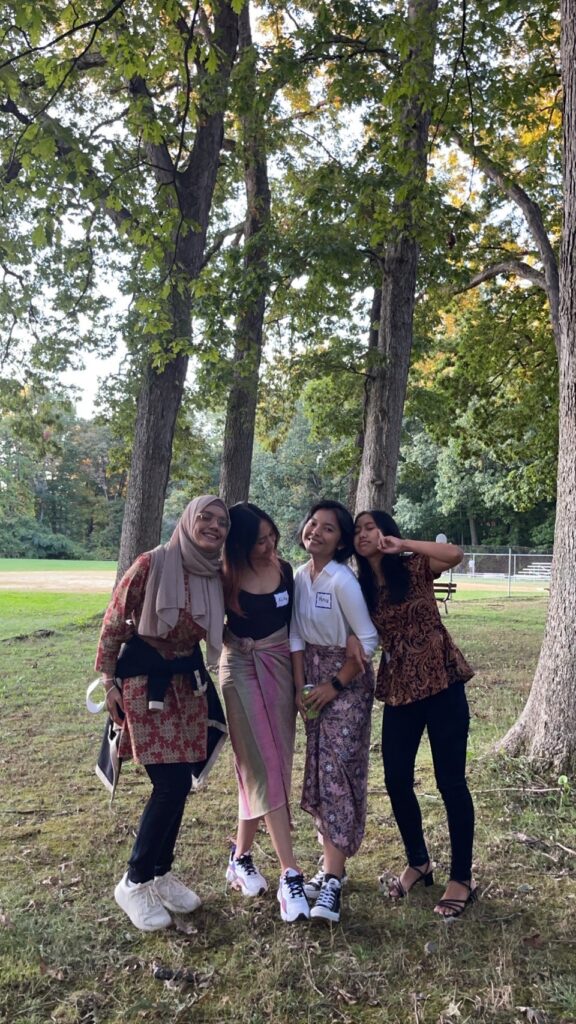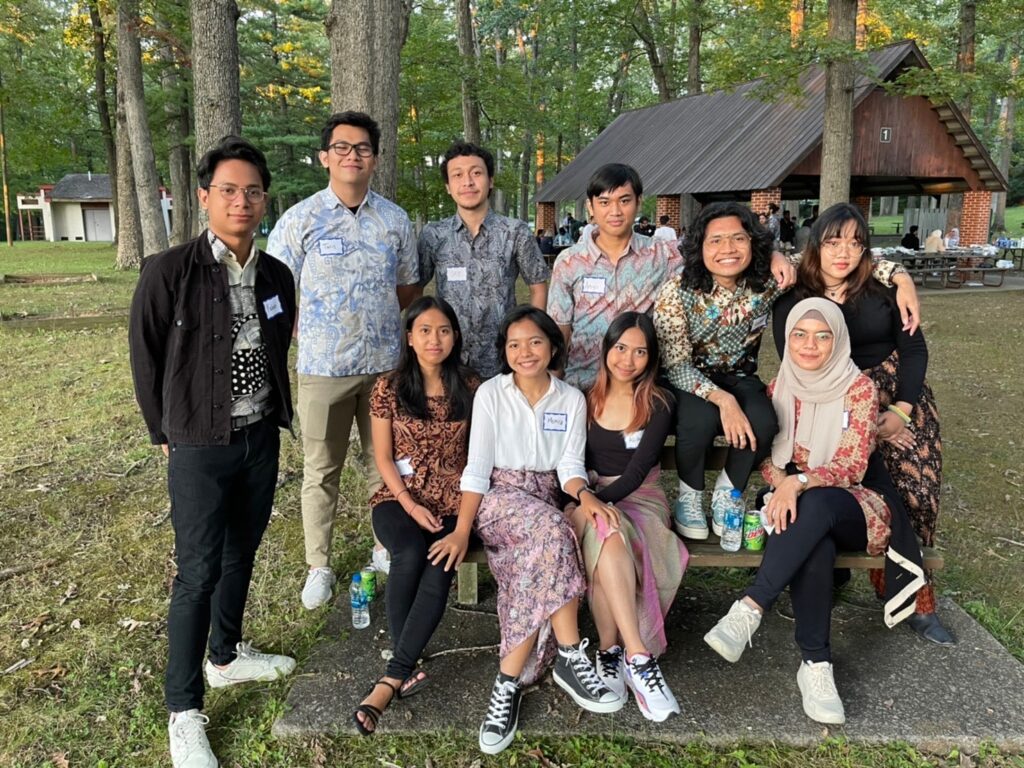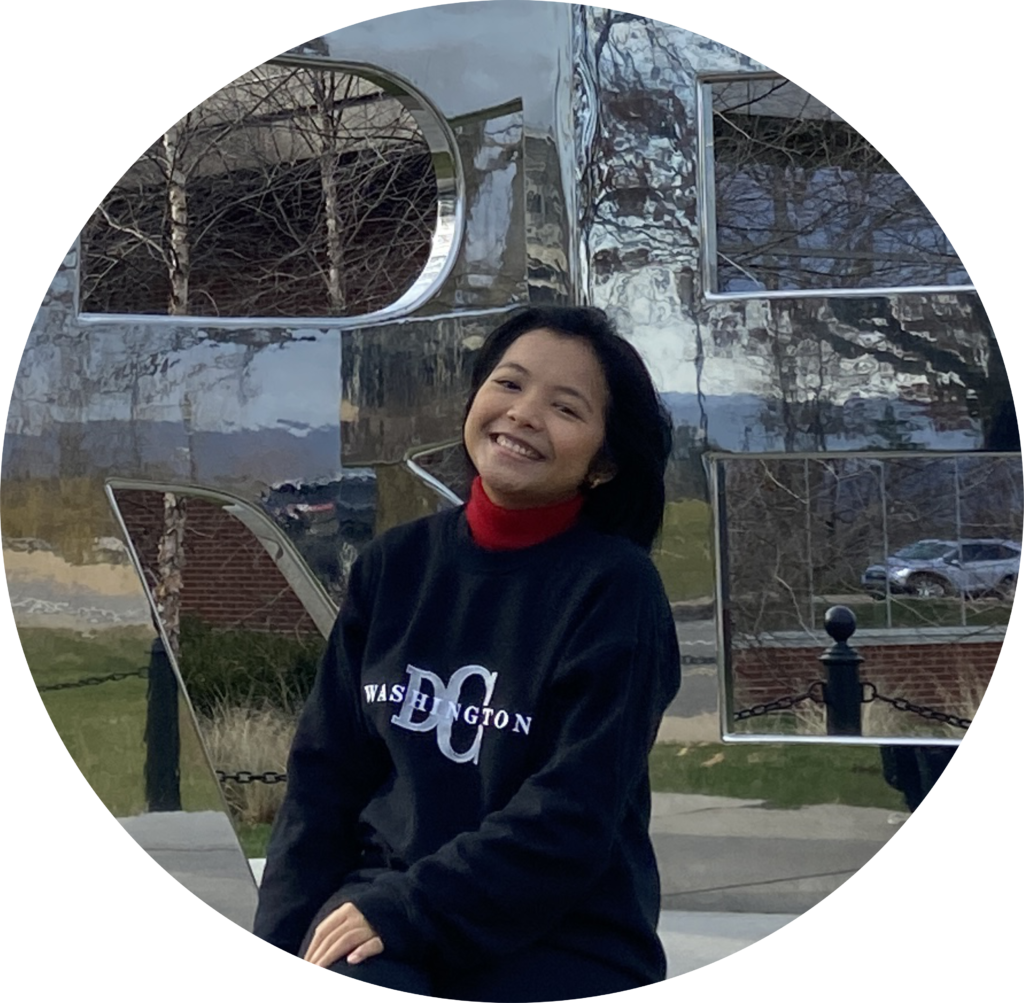In this Humans of IISMA post, follow Monica as she allows herself to be human with her peers, only to find herself along the way.
As a twenty-year-old Virgo, one of the traits that I really like about myself is my independence. Growing up in a military environment, I have been taught to do many things by myself. When I was younger, my dad was a pilot and would fly a lot, making my mom the primary caretaker of our household. This meant that my mom was always super busy juggling her tasks of being a housewife and a mom/parent. This also meant that my brother and I had to step in to help her at times, which is how I learned to become independent from such an early age.
The older I have gotten, I came to notice that my independence is not only manifested when I do tasks or through my mobility, but also in how I handle my emotions and mental well-being. I came to catch myself obsessing over doing things on my own, and I believe it originated from my independent and self-providing habit. I often don’t allow people to help me despite them insisting that they genuinely wanted to help. And I know that my toxic trait of blocking everyone out — of not allowing people to know or see what I’m feeling or going through emotionally because I feel that I am perfectly capable of handling things myself — stems from my so-called independent self.

During my time at Penn State University, I lived together with nine other awardees in the same dorm building. Being in the same program and not knowing anyone there, we naturally relied on each other for various things, which at first, I avoided doing. I avoided asking for help from the other awardees because I felt like I could do things by myself.
Until, on two separate occasions, I fell sick.
I don’t get sick often, but when I do, it’s usually pretty bad. The first time was due to a COVID vaccine. Pfizer did do its number on me,I am not gonna lie. However, I was still able to manage after a dose of paracetamol.
The second time, however, was what hit me hard. There was a flu that had been spreading around campus and, well, I caught it. I was knocked out — I couldn’t move, walk, or swallow water without agonising in pain. And because I lived in a dorm, I had to rely on store-bought sustenance or take a detour to the Dining Hall or The Hub (a student centre with a food court). With my joints stiff as a brick, I couldn’t go out and buy myself food, so I caved and asked for help from my peers.

I remember apologising for a bunch of times to my roommate, Ami, when I asked her to get me honey and animal crackers at the commons store. I felt terrible for asking her as I thought that I was inconveniencing her so much. I remember feeling so bad for my friend Taris, who would buy and feed me food, when he was actually also sick at the time. I remember feeling like a burden to my friends and being such a hypocrite for not practising my preach on independence. At least ten times a day they’d say to me, “Hey, don’t worry. We’re here,” followed by, “You have to eat, it’s the only way you’ll get better.”
They insisted that I wasn’t burdening them, because ultimately, we are all each other’s responsibilities and we have to take care of one another. And after an awful amount of “I’m sorry” and “We’re here for you” banter being thrown in the air, Ami and Taris finally nursed me back to health and I was as good as new.
That incident was all it took for me to let my wall down and allow these people, who were once merely strangers to me, to really come into my life. I allowed myself to be vulnerable with them—something I don’t do very easily. I became an open book and would speak my mind if something was bothering me. I would share what hardships I was going through instead of insisting on keeping them myself. I even allowed myself to cry in front of them, which I’d never done before. I let my friends help me manage my way through life’s puzzles and hurdles, and I found that it was not as bad as I thought.
I learned that all this time, my independence and “Miss Do-It-All-Herself” facade have led me to put on a tough act in front of people. When things go wrong, my instinct has always impelled me to keep it to myself and be strong because I felt that I needed to constantly appear strong and tough. But when I started to let my guard down, I realized that needing people and allowing people to help is not a sign of weakness, but rather a sign of strength. Recognizing when to be vulnerable and letting people comfort you takes a lot of courage. My friends didn’t want me to appear tough, they just wanted me to be okay.

So, here’s the takeaway from my IISMA experience: when I let people in, I become a better person. Once I started opening up to my friends, I became a better communicator. I speak my mind instead of going with the flow of everything, pretending that things are alright. I share how I feel, which allows other people to understand that I might be going through something, not just moody. And once I started letting people in, I realized that people do care and want to be in my life with my best interest at heart, a revelation by which my presumptions have been proven wrong.

Created by : Monica Audrey Widiany Kusteja Putri
Monica is a final year student at Universitas Gadjah Mada Yogyakarta. As a Fall 2021 IISMA awardee, she spent a semester at The Pennsylvania State University in Pennsylvania, USA. In her free time, she likes to spend time with friends, checking out new food places and coffee shops in town. Post-IISMA, she dedicates her days to working on completing her English degree, while continuously contributing to her faculty and department at her home university as a teaching assistant.

it was a very exciting and motivating experience, had lots of stories and friends. very valuable experience. I hope I can also have many experiences like that